Nepali mother’s desire to learn takes her back to school at 27
Parwati Sunar doesn’t drop her son off at the school gates – she walks in beside him
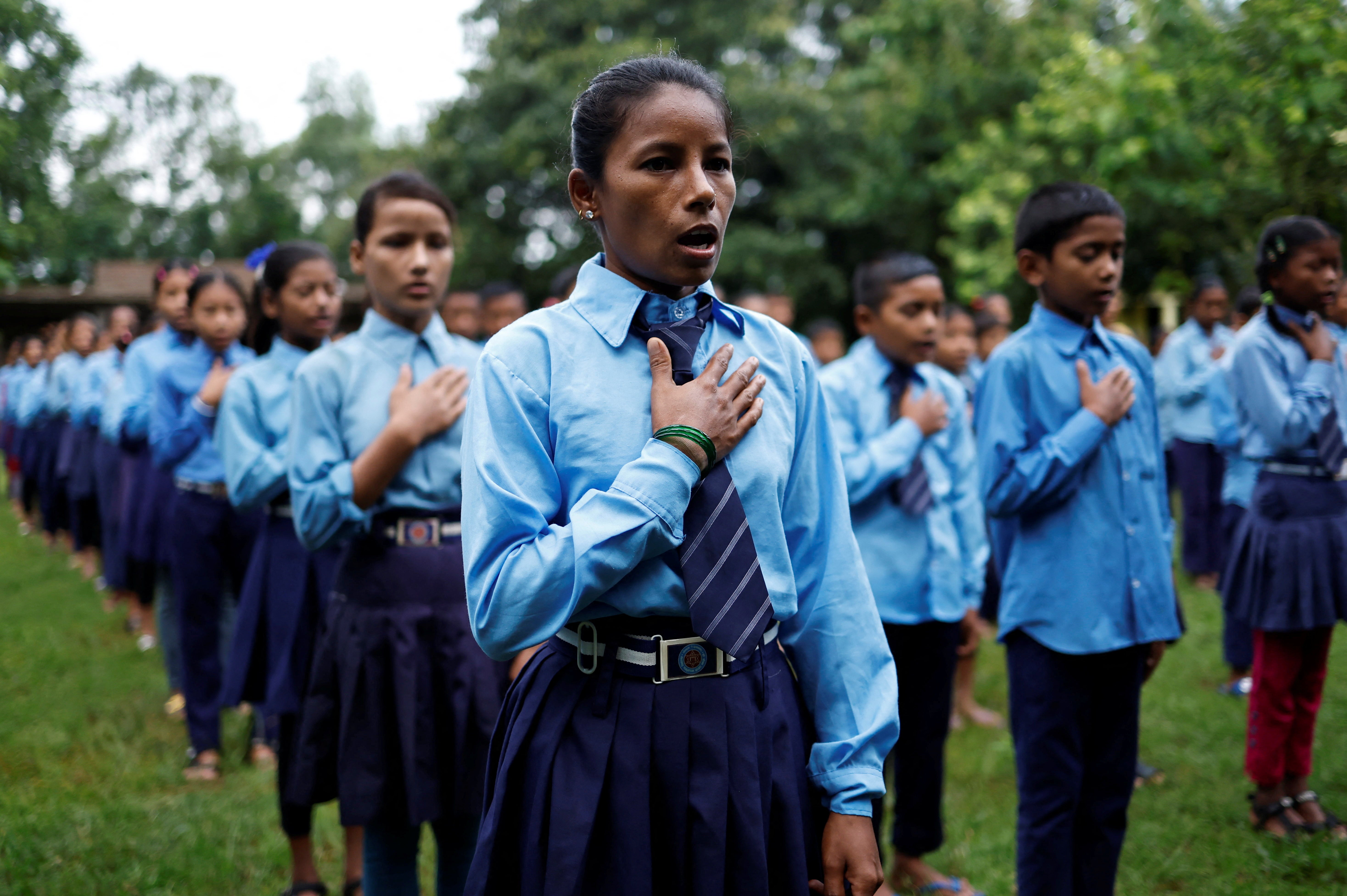
A Nepali mother of two, Parwati Sunar finds herself attending the same school as her son after returning to an education system she fled at the age of 15, when she eloped with a man seven years her senior.
“I enjoy learning and am proud to attend with classmates who are like my own children,” Sunar told Reuters from her village of Punarbas on the southwestern edge of the Himalayan nation, where she studies in the seventh grade.
About 50 per cent of women are literate in the country of 29 million, and the 27-year-old Sunar said she hoped to become “literate enough” to be able to keep household accounts.
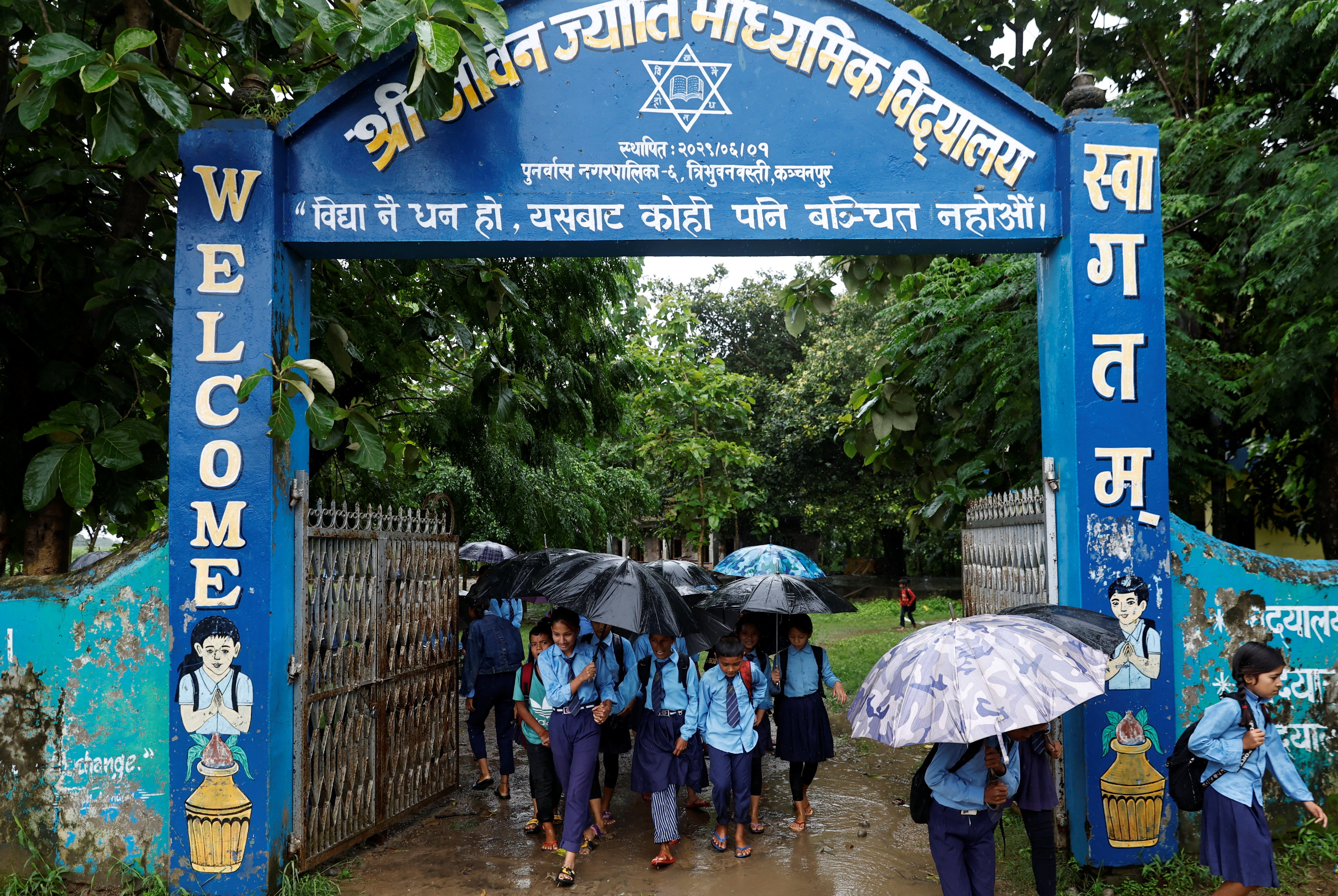
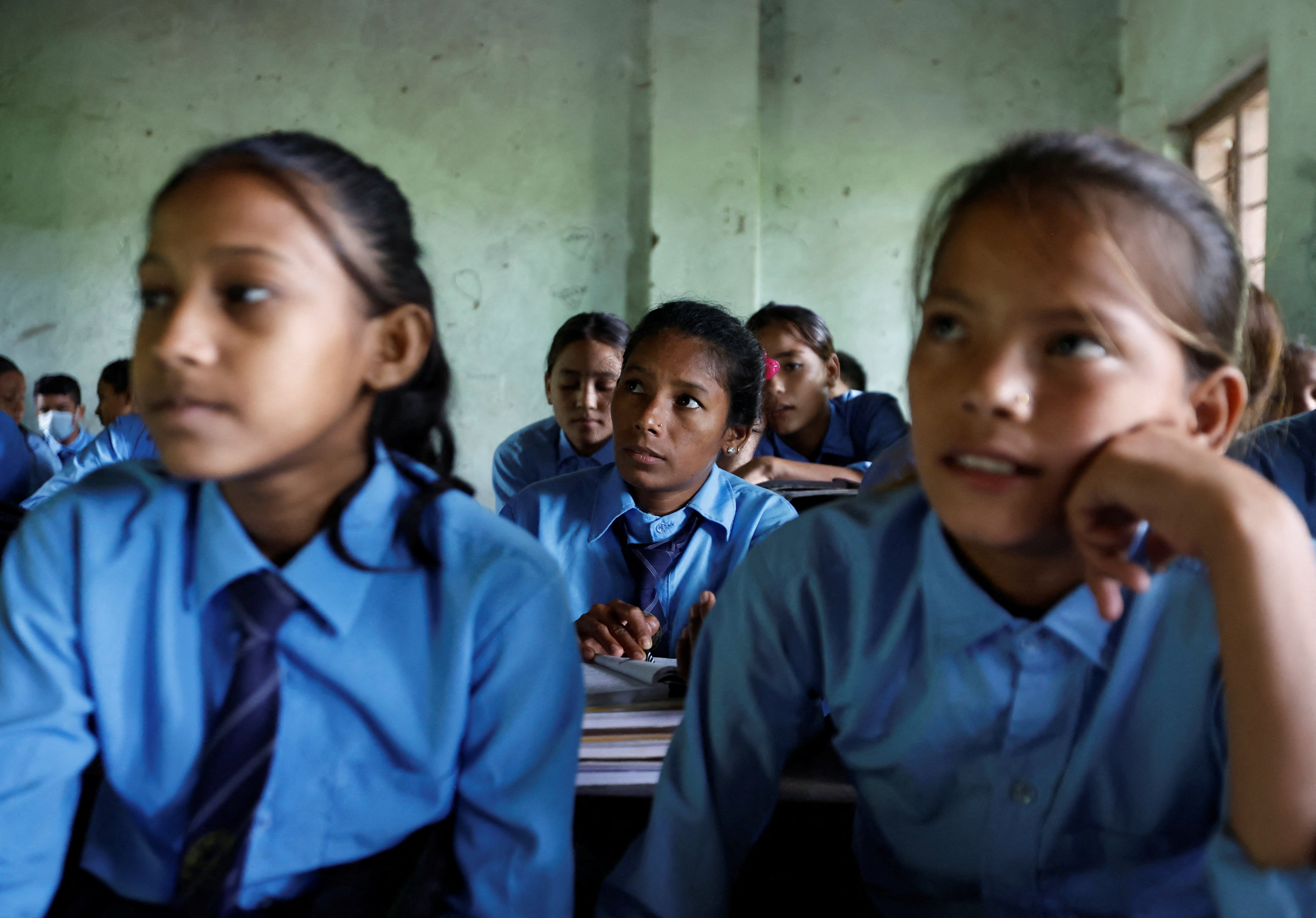
“I think I should not have left my school,” she said, explaining the desire to catch up on the lessons she missed, having had her first child at 16.
“I feel good to go to school with mum,” said her son, Resham, 11, who is a grade behind his mother, spends lunch breaks with her and rides pillion as she bicycles to computer classes they attend at an institute nearby.
“We chat as we walk to school and we learn from our conversation,” he said, adding that his mother hoped he could become a doctor.
As a student, Sunar was below average, but a keen learner, said Bharat Basnet, the principal of the village school, Jeevan Jyoti.
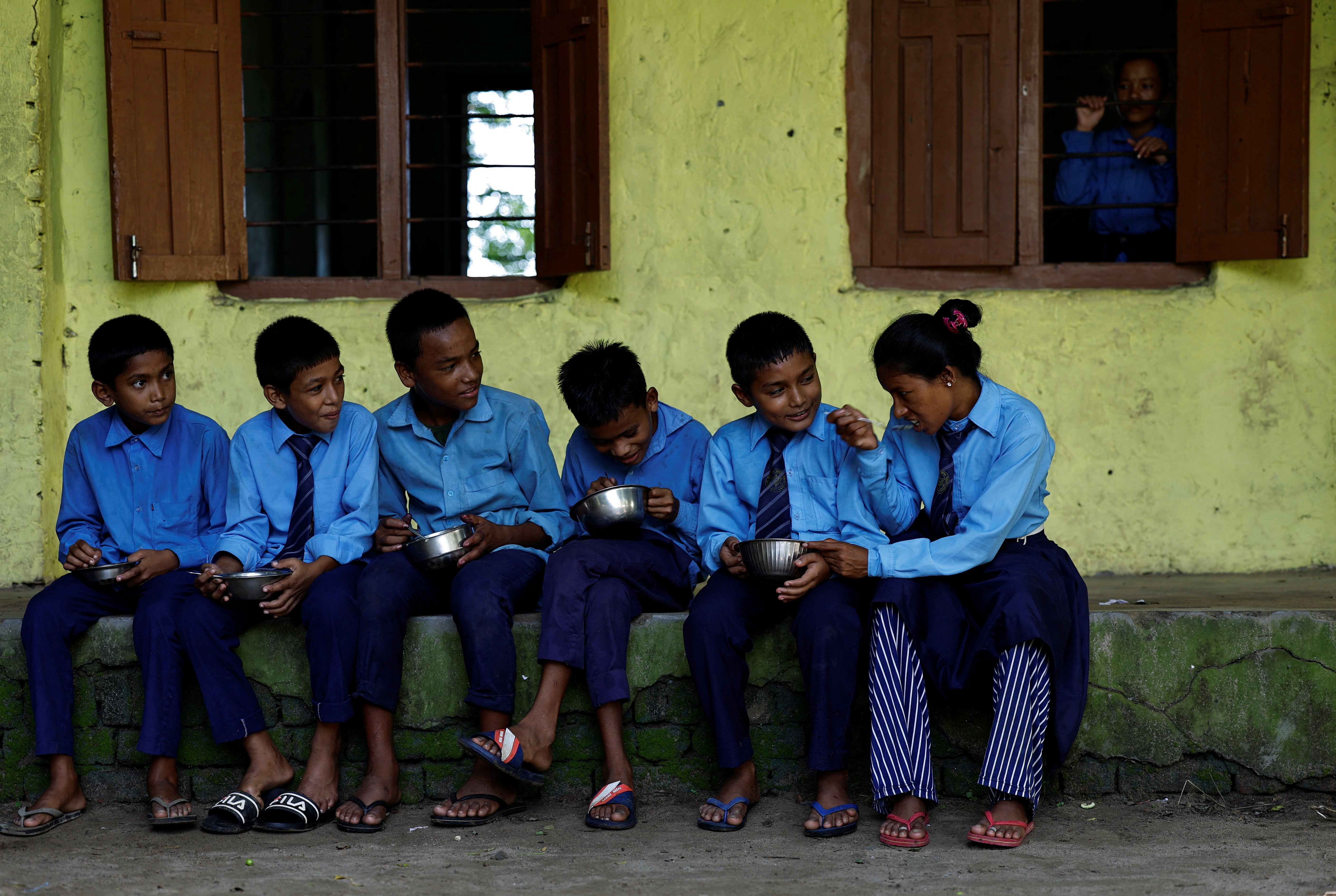
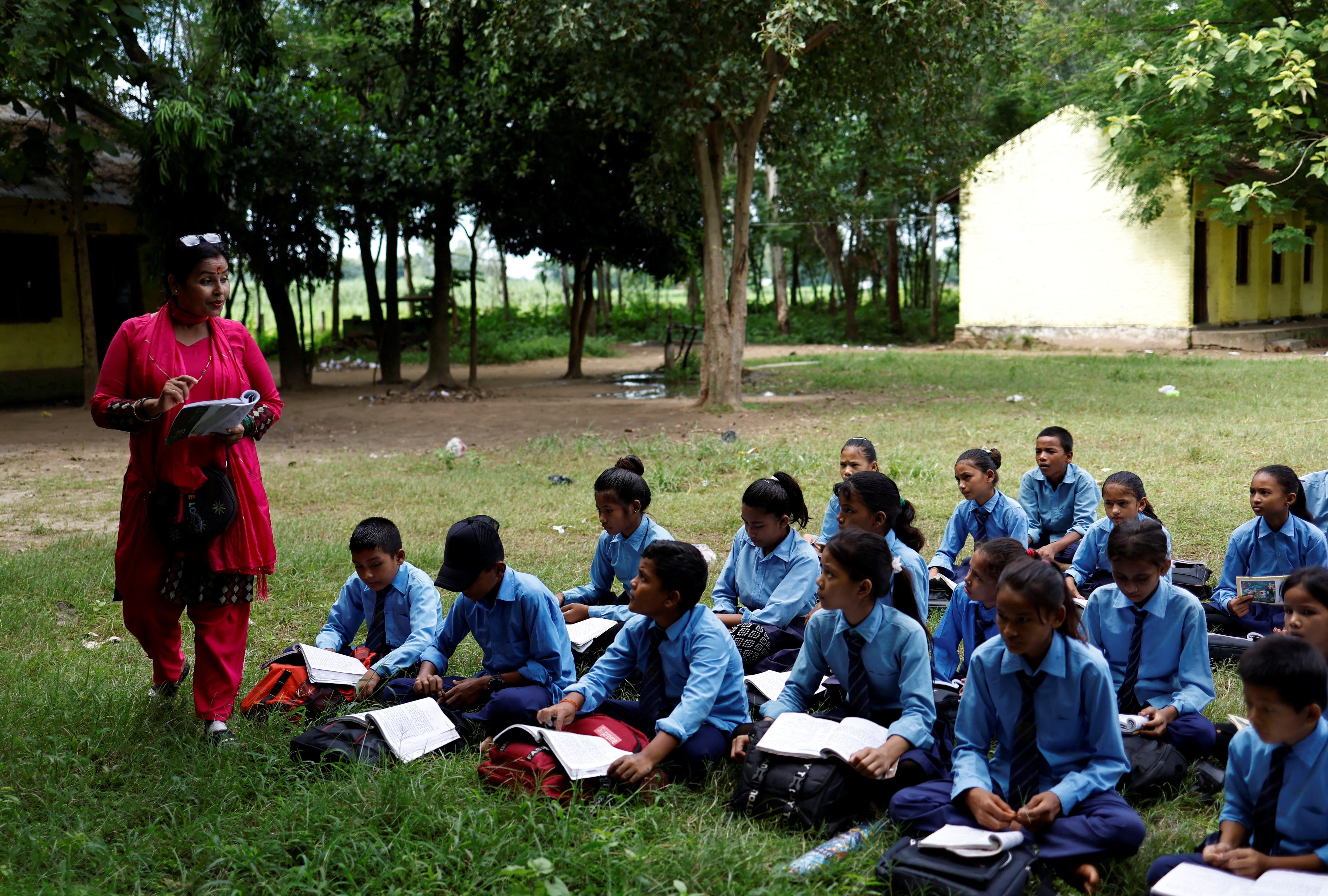
Her day begins at dawn in a tin-roofed, two-room structure of bare bricks shared with sons Resham and Arjun and her mother-in-law, with their goats penned into one area. Their home lacks a toilet, so the family use a nearby plot of public land instead.
They belong to the Dalit community, formerly known as untouchables, on the lowest rungs of the Hindu caste system, but Sunar said the family faced no ill-treatment over this.
After a simple meal of rice and lentils, Sunar puts on the school uniform of light-blue blouse and skirt with a striped tie before taking the 20-minute walk with her son to the school, also a tin-roofed structure, surrounded by trees.
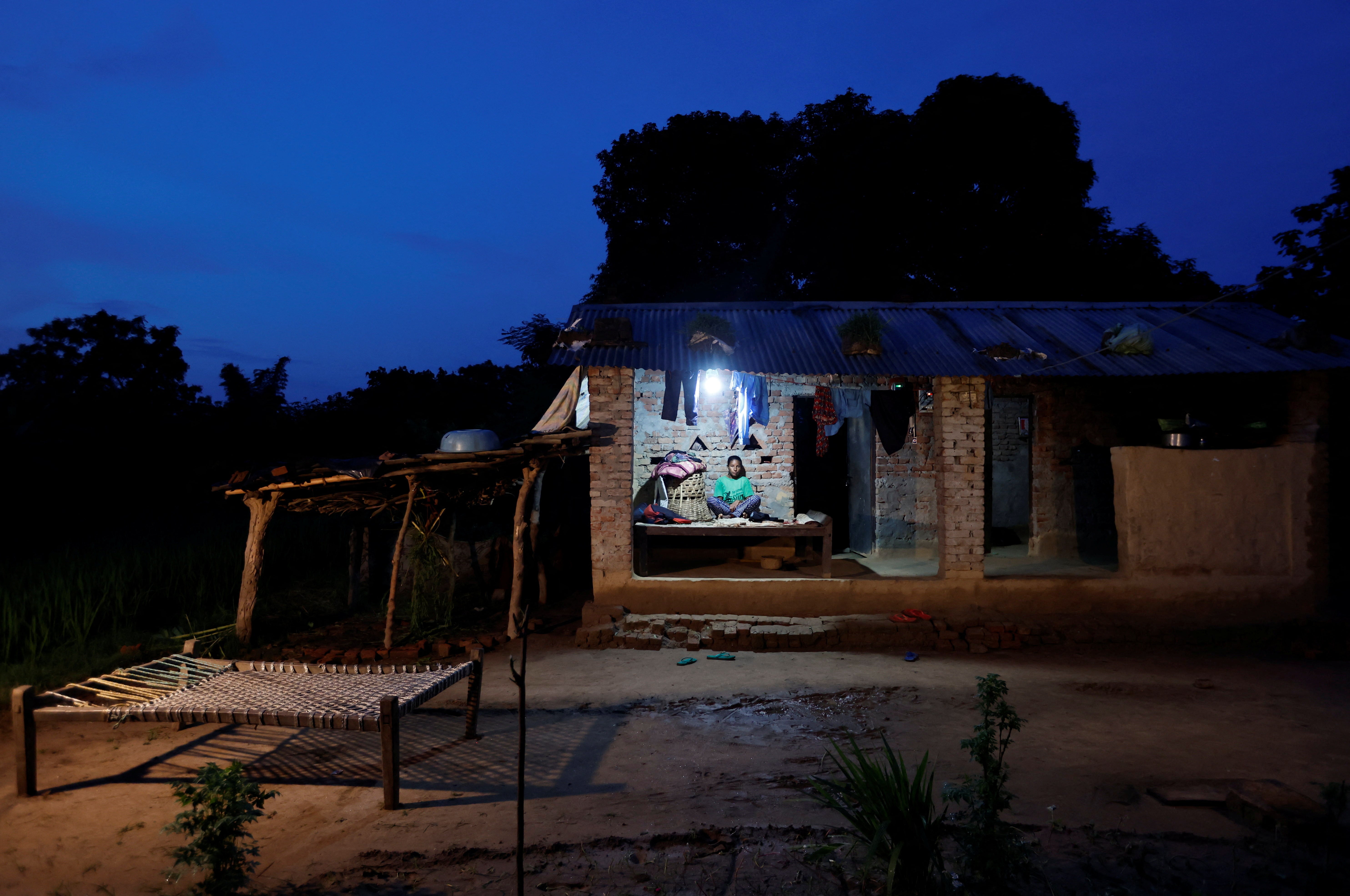
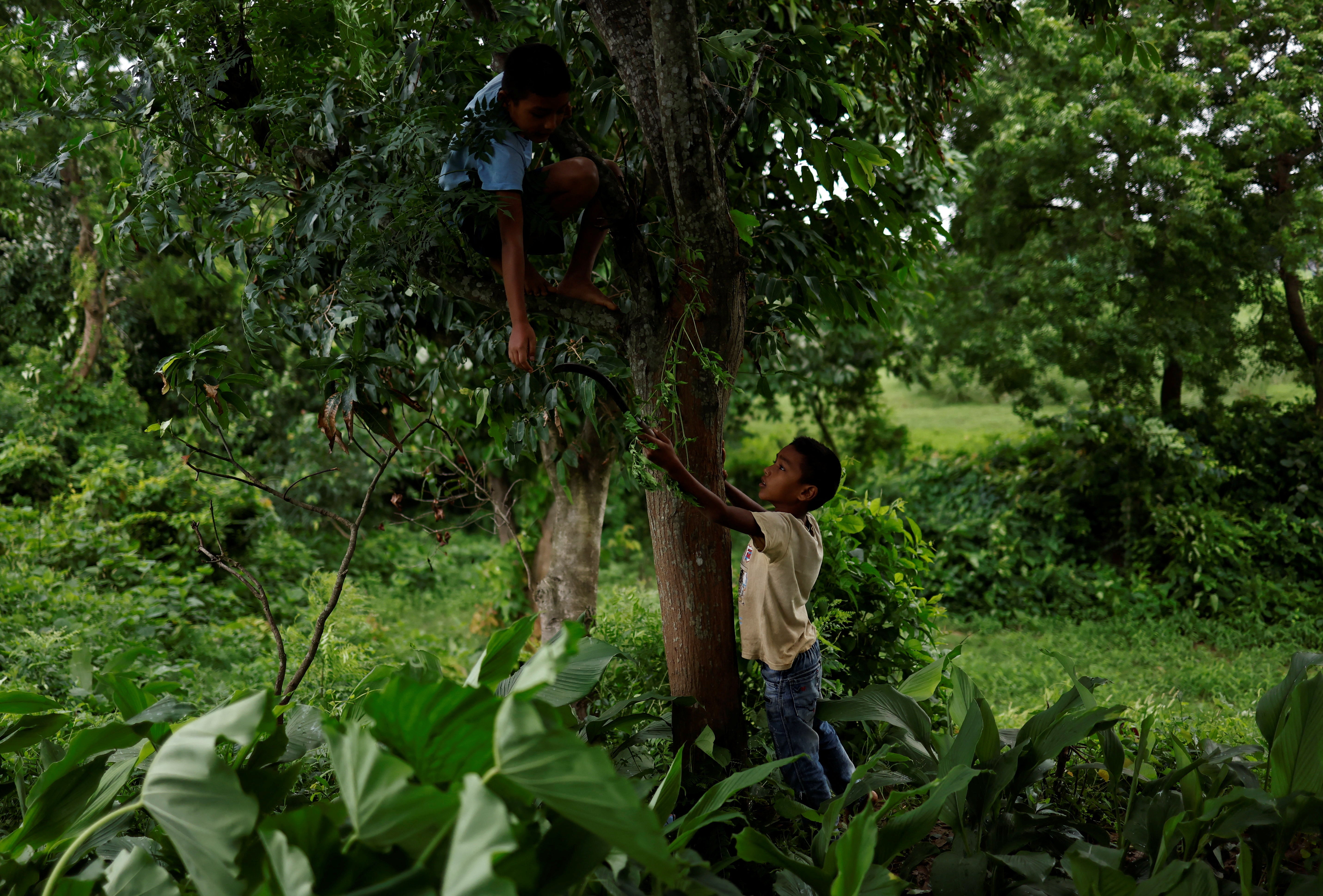
It was fun to be in the same class with Sunar, said Bijay BK, one of her classmates, aged 14.
“Didi is pleasant,” he said, using the Nepali term for an elder sister. “I help her in studies and she helps me too.”
Sunar’s efforts could inspire village women thirsty to learn beyond their domestic horizons in Nepal, where they still face discrimination and child marriage is widespread, though illegal.
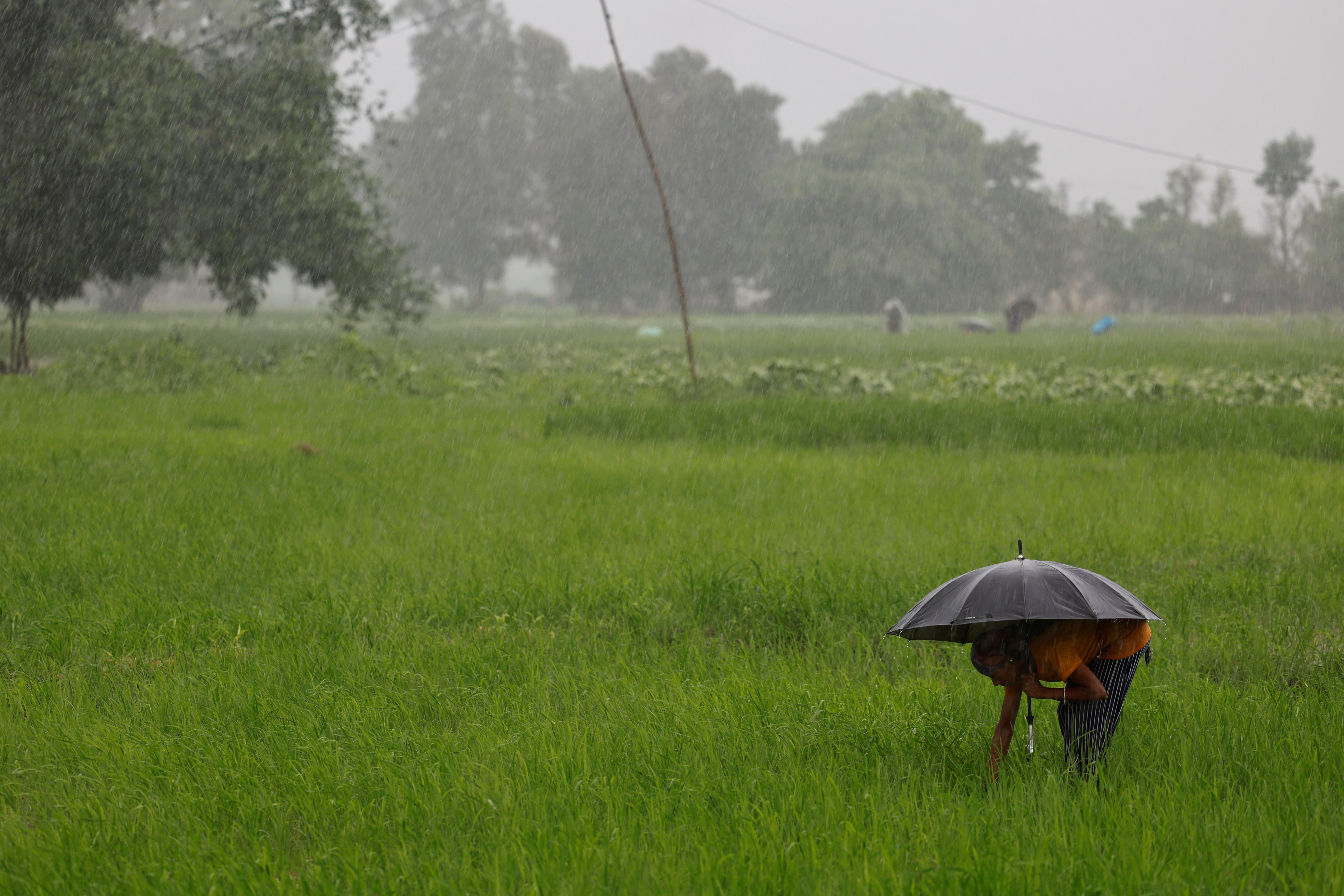
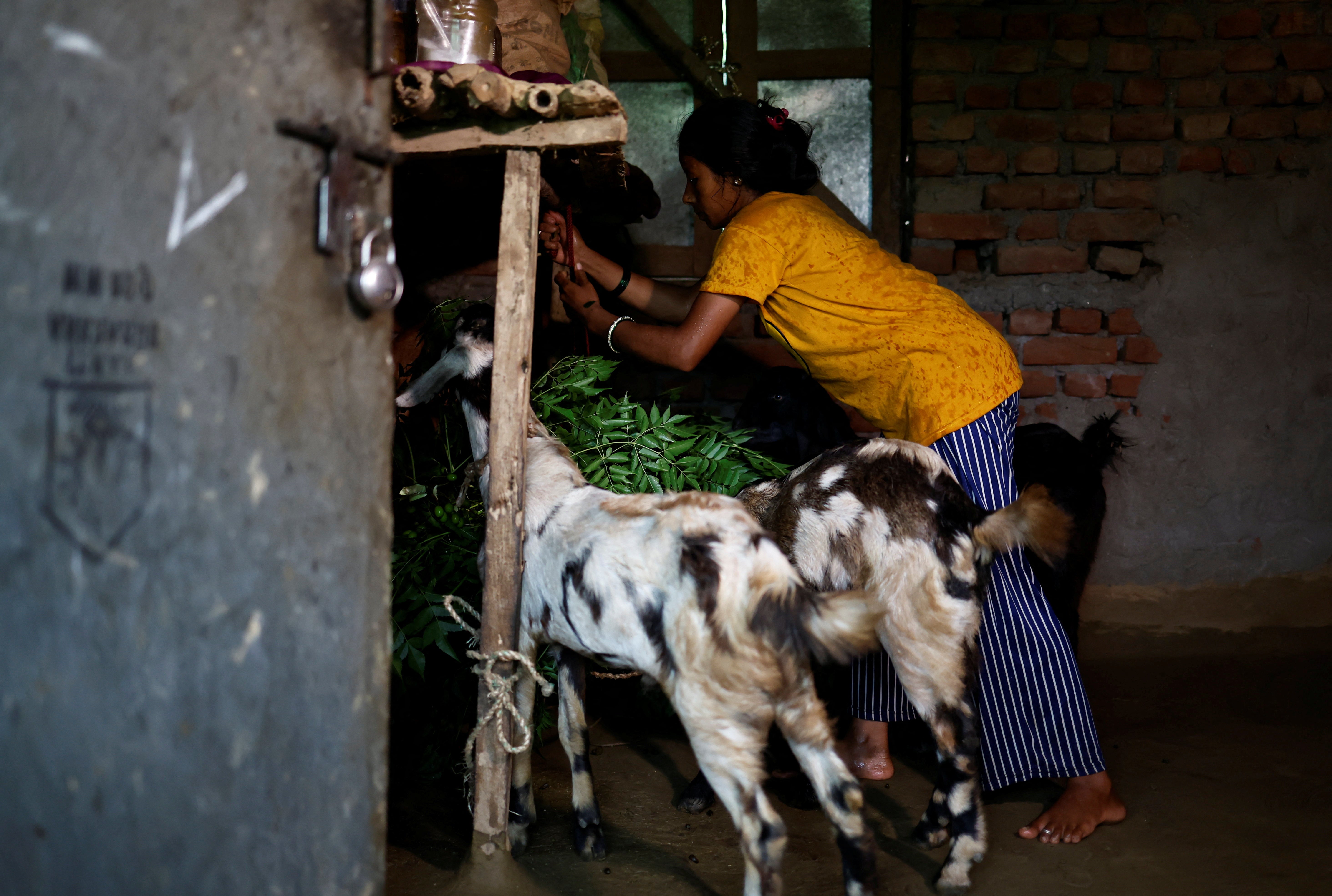
“She is doing a good job,” said one of her neighbours, Shruti Sunar, who is in the school’s 10th grade, though not a relative. “I think others should follow her and go to school.”
Enrolment of girls in basic education, or grades 1 to 8, is 94.4 per cent, official data shows, but Krishna Thapa, president of the Federation of Community Schools, said that nearly half dropped out for reasons ranging from lack of textbooks to poverty.
“Schools lack infrastructure, such as toilets for girls,” Thapa added. “Most girls drop out during their period because there are no toilets.”
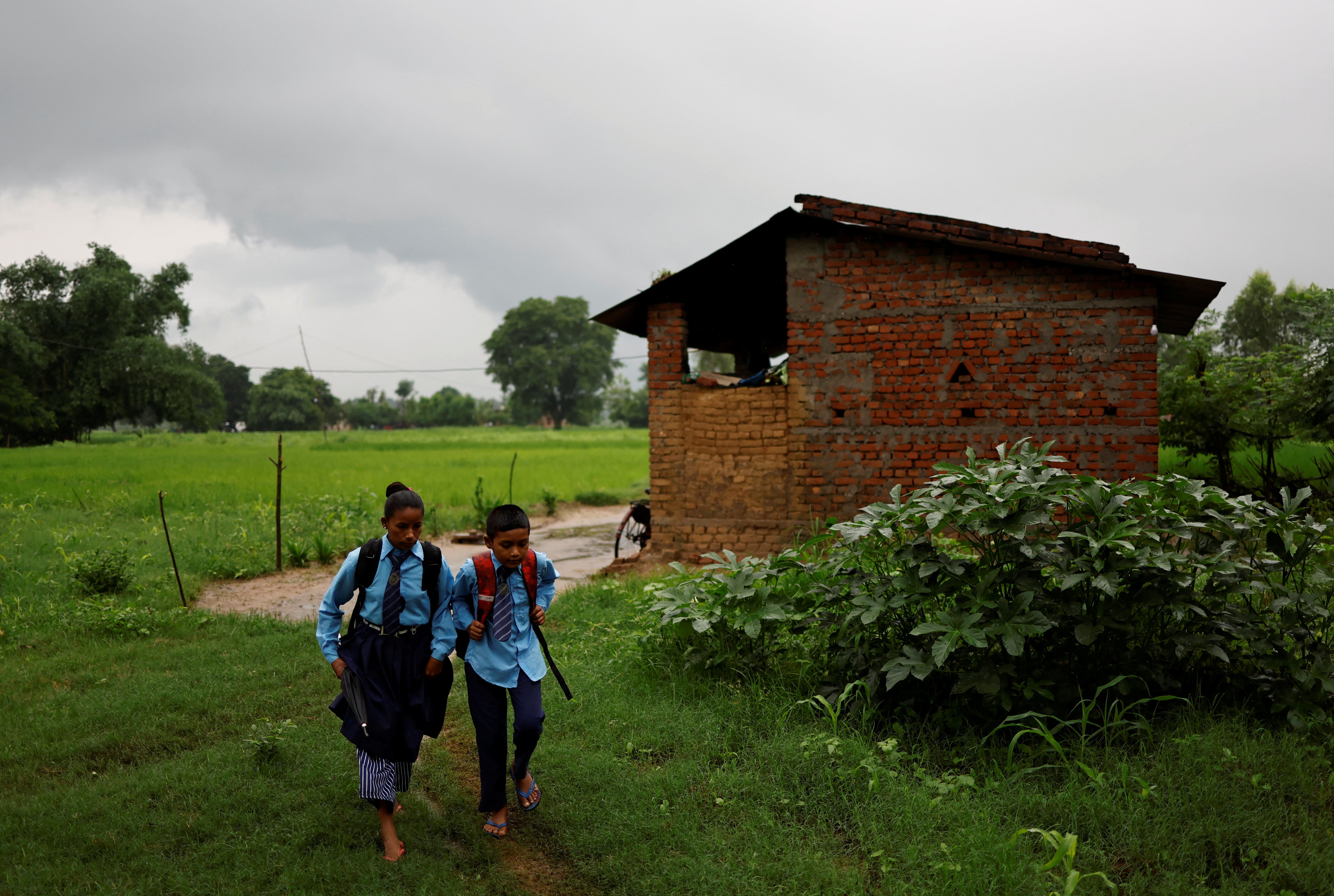
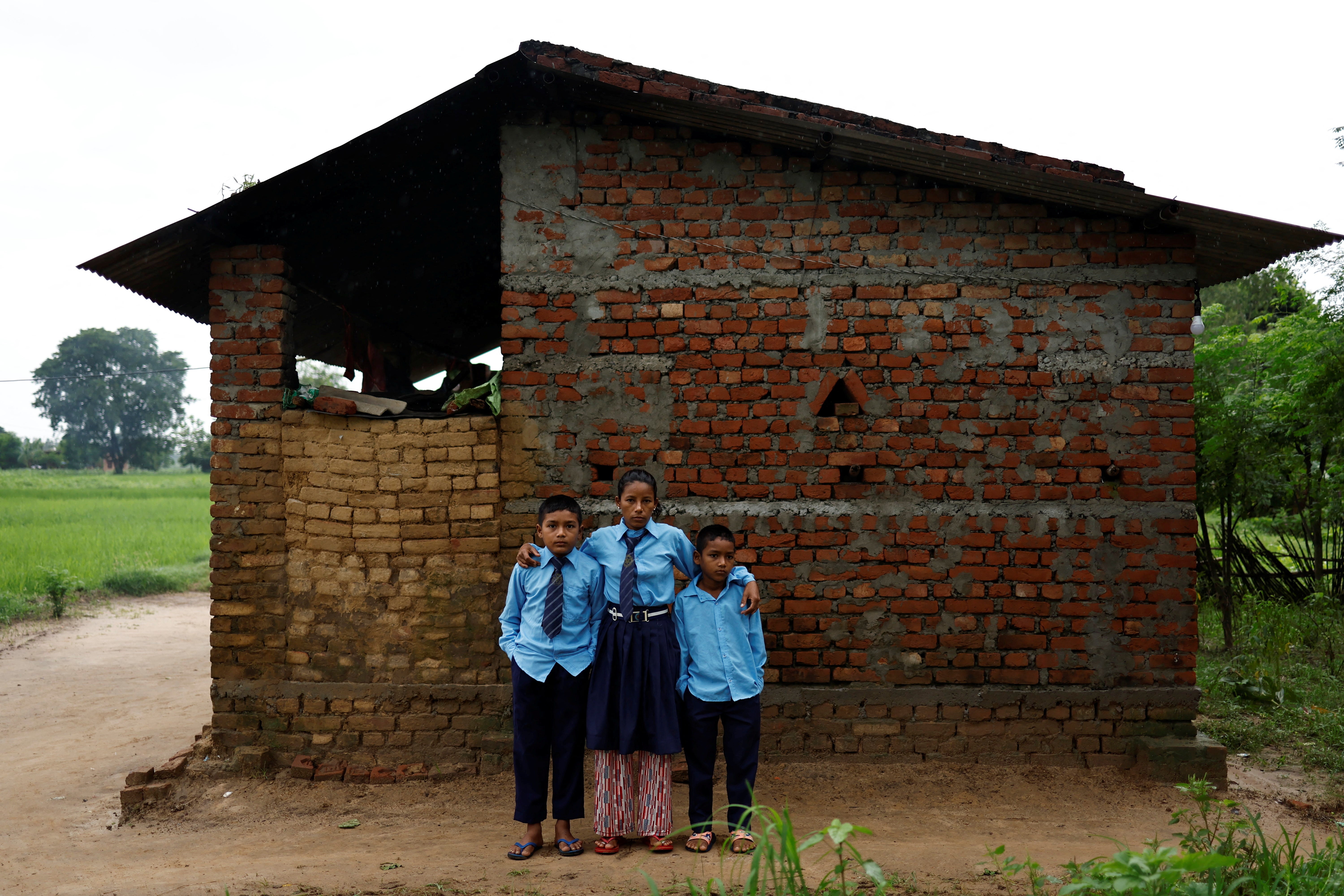
But Sunar, who gave up a job as a housemaid in neighbouring India to return to her studies, said she was determined to finish the 12th grade.
“This is the thinking now,” she added. “What lies ahead, I don’t know.”
Photography by Navesh Chitrakar
Reuters
Join our commenting forum
Join thought-provoking conversations, follow other Independent readers and see their replies
Comments
Bookmark popover
Removed from bookmarks